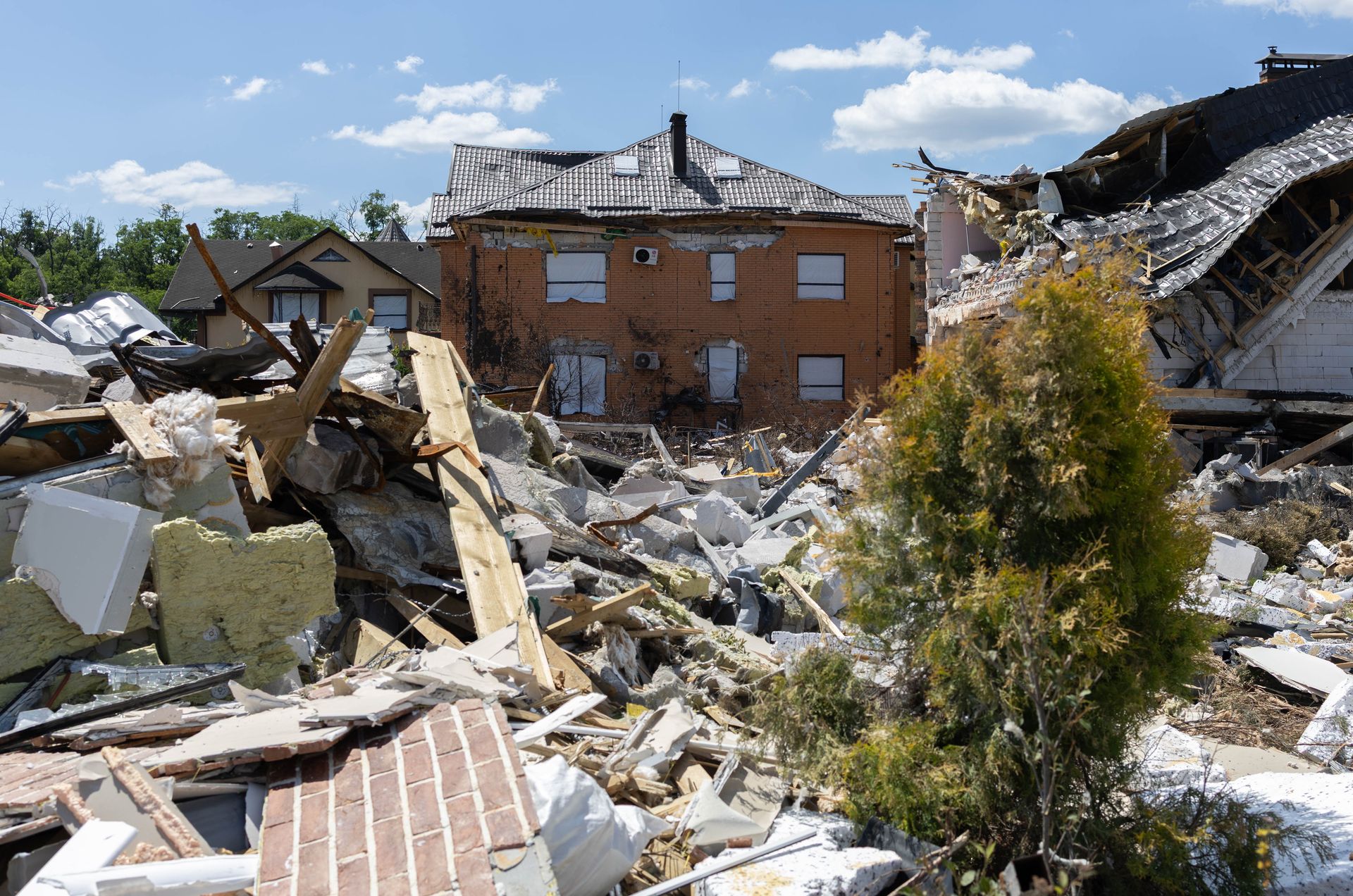Muscle beaches, drag racing, and drones falling into the sea. Summer in Odesa hasn’t stopped
Though international tourism to Odesa has all but vanished, Ukrainians with limited travel options increasingly seek out the Black Sea to relax

People dance and raise glasses outside the wine bar Happy Wine in Odesa, Ukraine, on Aug. 8, 2025. (Stefania Amamdjian/The Kyiv Independent)
Just after the sun rises over the sea in Ukraine's southern coastal city Odesa, shirtless men with gold chains flip tractor tires on a beachside blacktop, while women balance on their yoga mats at a pier. As fishermen cast their lines out into the water, cormorants swoop down to hunt for the same prey.
By the time the mouth-watering smell of lunch-time kebabs wafts off of seaside grills, it's hard to find a spot on the fine-grained white sand to lay down a towel.
The coastal city is on track for its busiest tourism season since Russia's full-scale invasion, and is projected to surpass last year's number of non-local visitors — around 3.4 million, with Ukrainians outpacing foreigners more than 6 to 1, according to city estimates.
Although international tourism to Ukraine's beaches has plummeted, domestic tourism continues to pick up. Stresses of the war have heightened citizens' need for relaxation, but their vacation options are sharply limited by the closing of airports, a collapsed currency, and travel restrictions on men of military age.
And so, Odesa. Only a train ride away — and the last unoccupied major city on the country's Black Sea coast.
"Tourism and war are incompatible things, but people somehow adapt."
Standing on a rock and watching swimmers bob in the waves, 52-year-old schoolteacher Svitlana Kozynko finds that a week in Odesa has helped her disconnect from the fear and anxiety she feels living in the northeastern city of Kharkiv. With her husband serving at the front and her two grown children in Italy, she and a colleague booked a last-minute vacation, desperate for a break from the constant attacks on their city near the northern border with Russia.
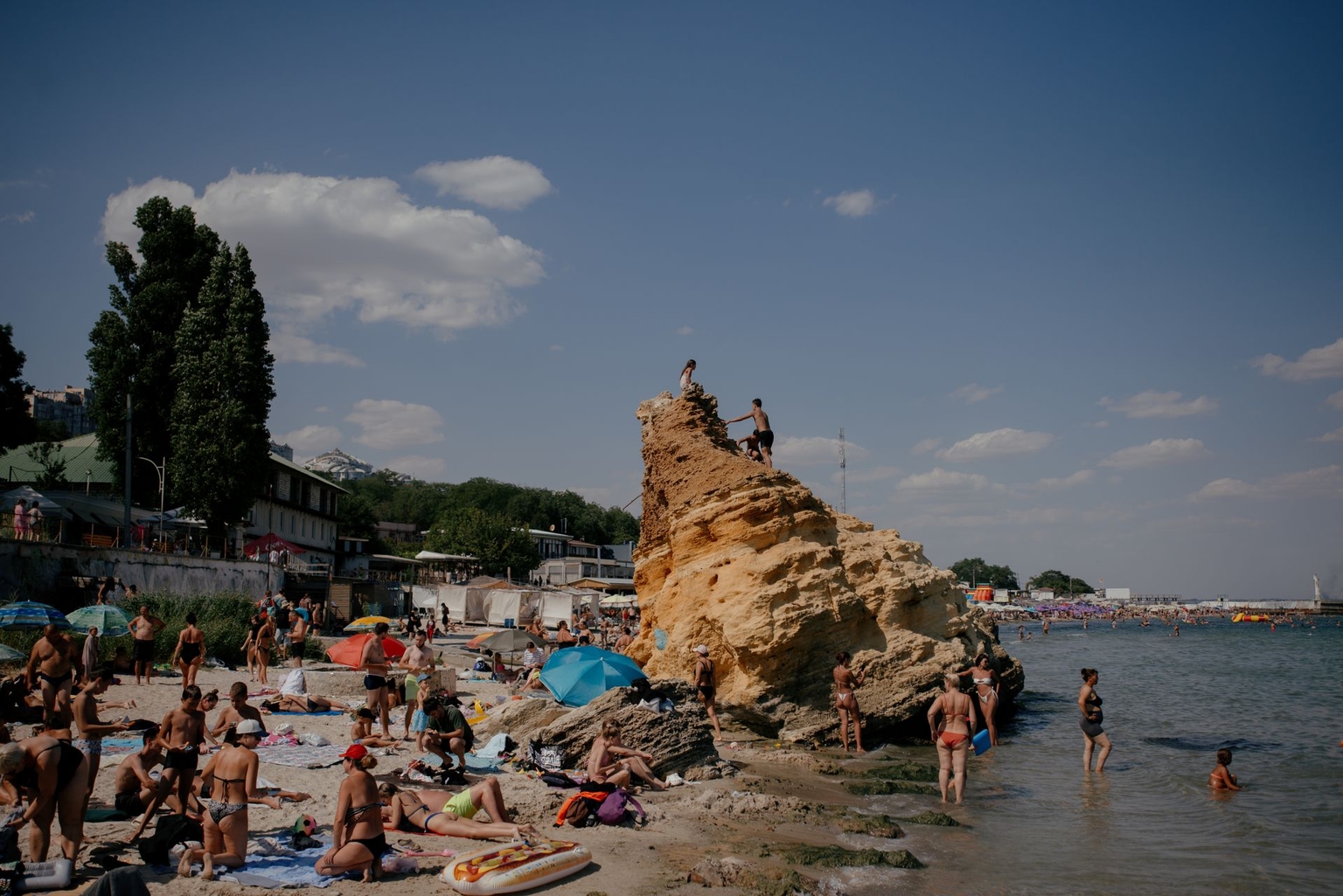
Because of high demand, train tickets were sold out. The two rode a 10-hour bus and opted to stay in a suburb away from the city noise and air raid sirens.
"It's paradise for us," she says, turning her face towards the sun. "At home, I always hear when there are strikes, I hear the tak-tak-tak of shelling. When crystals fall from my chandelier, I don't even hang them back up, because I don't see the point."
In Odesa, she adds, she's been sleeping like a baby despite air raid alarms.
Demined beaches and drone wreckage
"Tourism and war are incompatible things, but people somehow adapt," Stanislav Pokrovskyi, the head of the city's tourism division, tells the Kyiv Independent. "I still don't understand how it works," he jokes.
The city has adapted, too. Before beaches open to tourists, divers explore their depths to clear them of mines. A recent viral video showed beachgoers cheering and clapping as a Russian drone plunged into the sea after air defense shot it down. Patrols on boats and quadbikes are now on the lookout not just for swimmers in trouble, but also for drone wreckage that has washed ashore.
And though Odesa can feel more carefree than other cities, the war is here, too, and life still takes its toll, Pokrovskyi adds.
Odesa was forced to close all its beaches in 2023 after the destruction of the Kakhovka dam led to a flood of dangerous debris washing up on its beaches, but this year, 30 are open after passing inspection, with more planned.
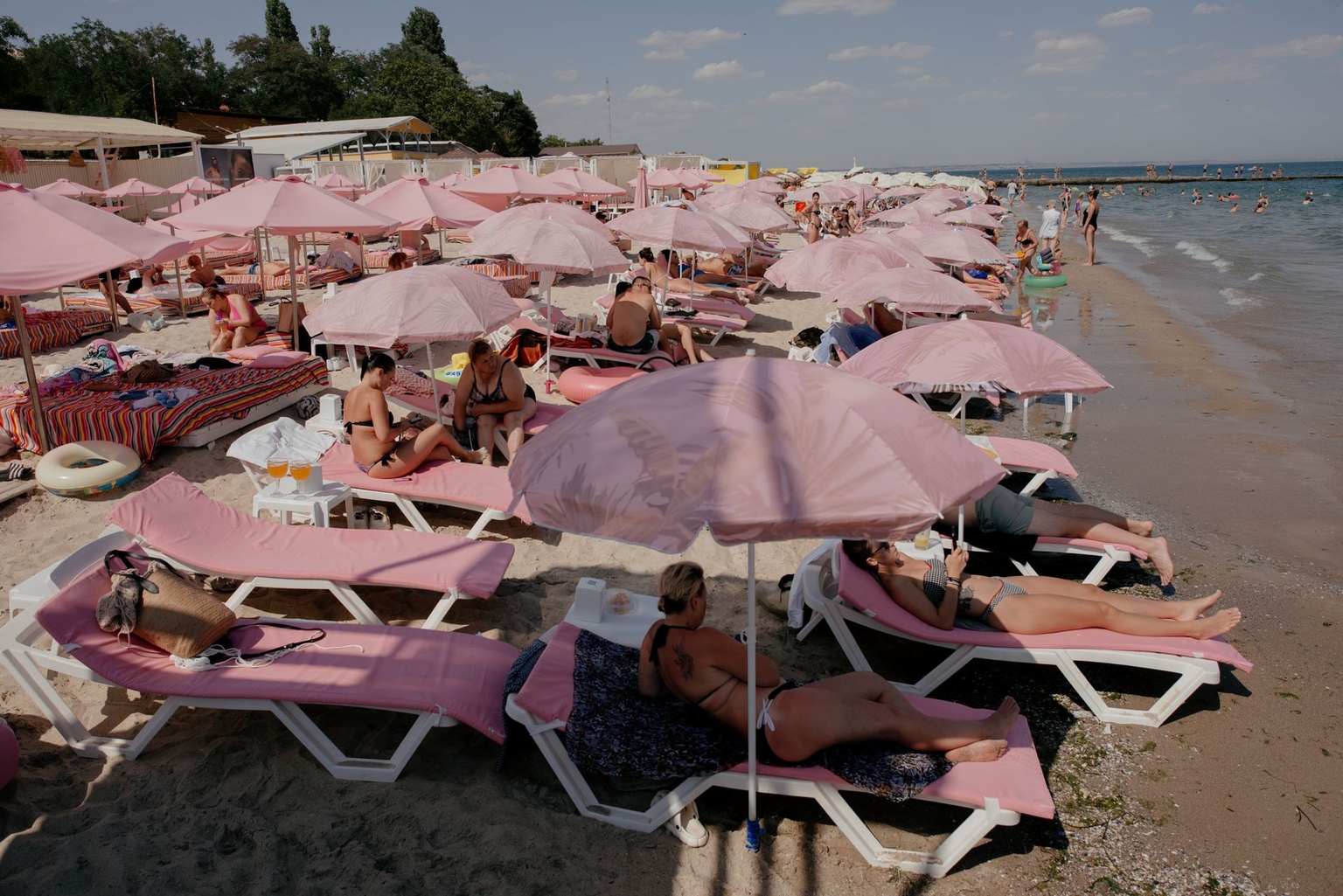
In the historic city center, deemed a UNESCO World Heritage Site in 2023, tour guides warn the passengers of their open-air electric carts not to photograph sensitive port infrastructure at scenic lookouts, as they shuttle visitors between city parks and the famous Potemkin Stairs built in the 1800s — the 192 steps that lead to the city from its port.
"We used to do English-language tours regularly throughout the summer, but now we only do them for private tours on request, when there is a delegation or group of volunteers," a representative for the company City Tours says.
The city captivates Ukrainians' imaginations so intensely that 500 kilometers northwest, wounded soldiers being evacuated from the front line sometimes joke that they'd like to skip the hospital and head to the coast.
"We're going to Odesa, right?" one soldier in the back of an ambulance on his way to Dnipro said with a laugh last month, after he was evacuated for a brain injury following a drone strike, then an artillery strike, on his armored vehicle.
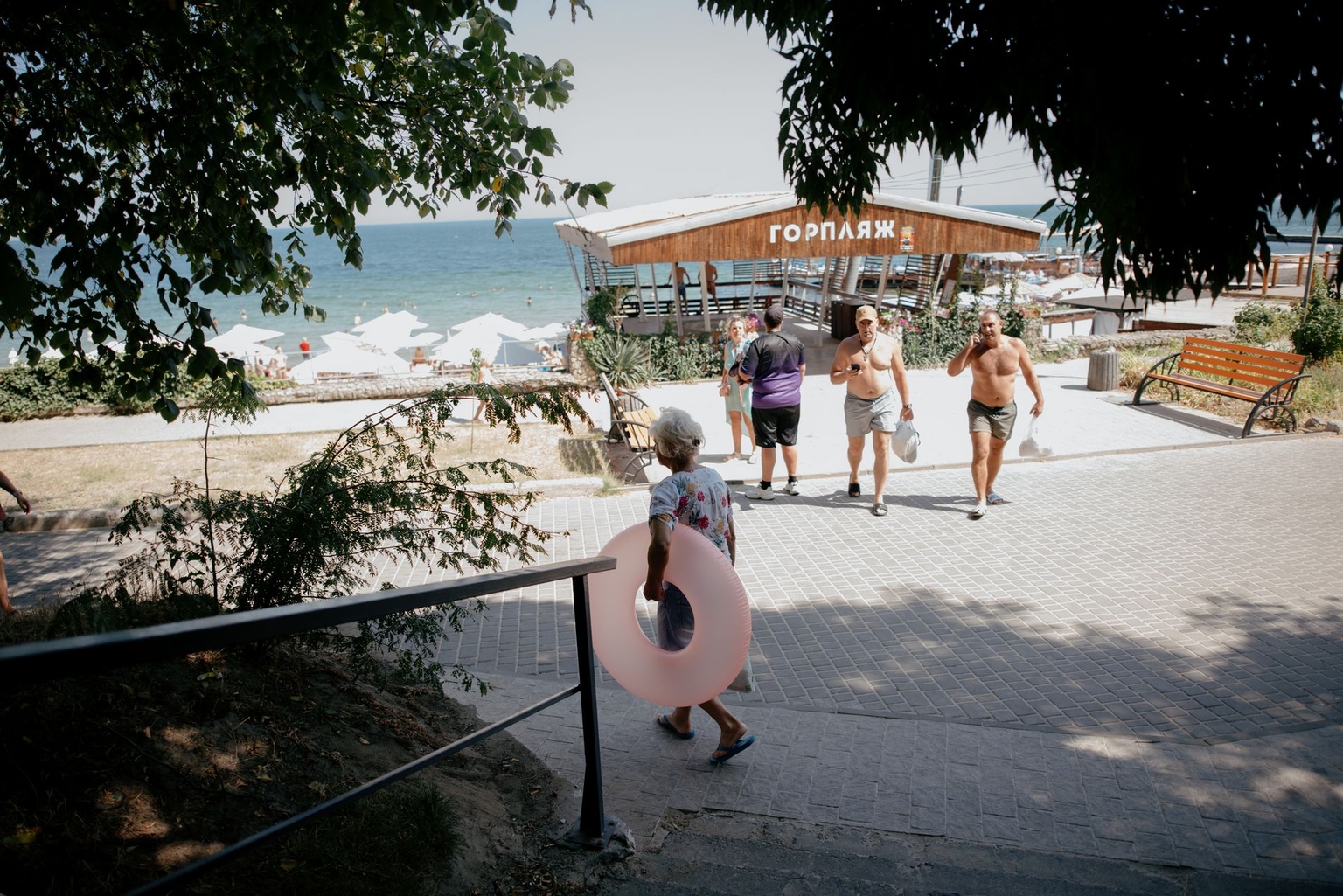
'Everyone wants to live'
While some find peace of mind at the beach or eating ice cream at cafes, others came to Odesa to find it on a stretch of unfinished highway at the very edge of the city — where Ukraine's first national drag racing championships since Russia's full-scale invasion were held on August 9th and 10th.
For hours under a punishing sun — intensified with the heat produced by dozens of tricked-out engines — children sucked on ice chips and event organizers ducked out of their tents to dunk their hats in barrels of water near the start line.
All eyes were on the most powerful cars in the country as they disappeared towards the finish line in mere seconds. The only drone present was a tiny remote-controlled quadcopter filming the races from overhead.
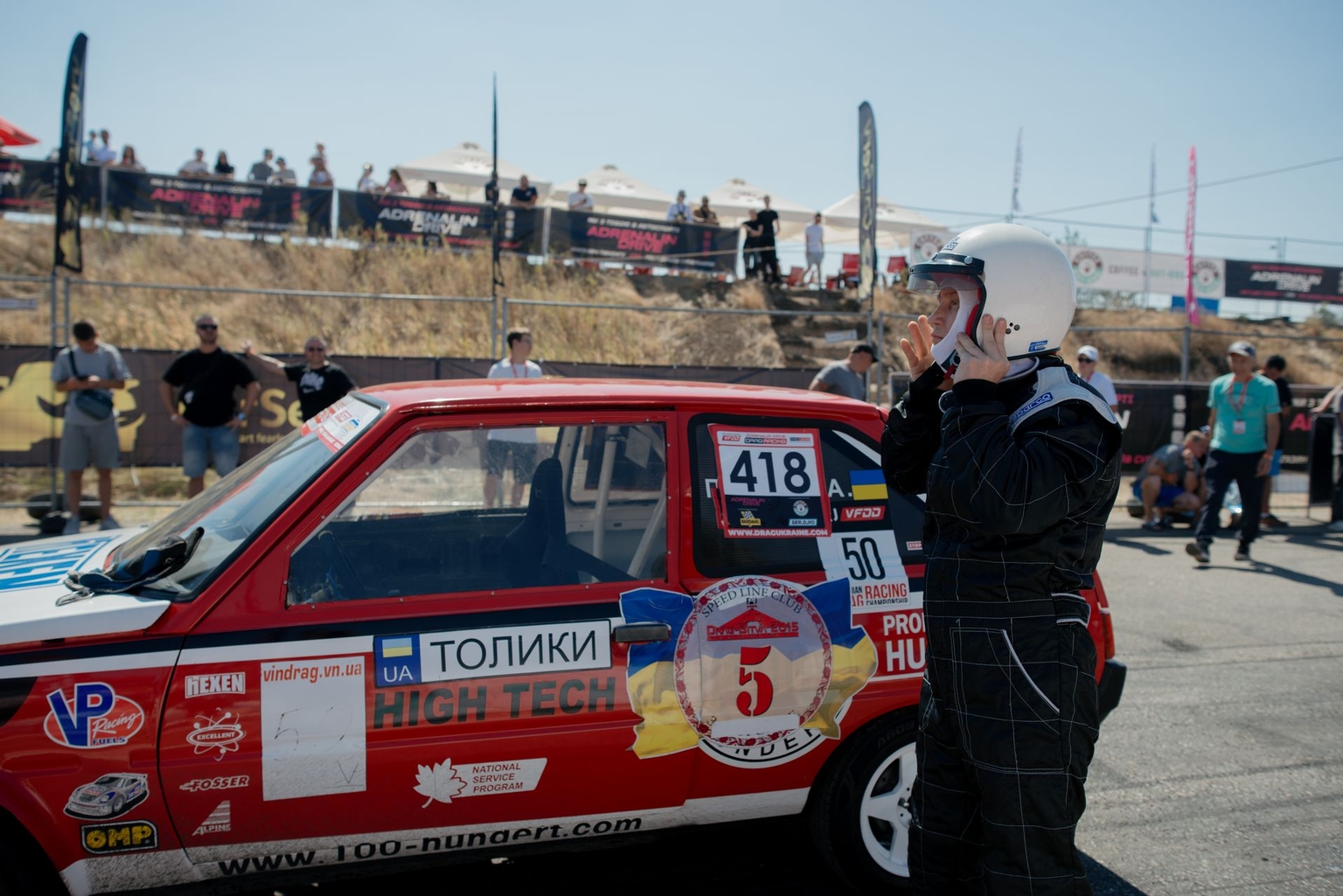
"Popularity (of drag racing) during the war has actually increased," says Vasyl Tverdovskyi, a local Odesan who took home the national title in the street rear-wheel drive division driving a 2018 McLaren 720S. "These races are one of the ways people distract themselves from the events happening in Ukraine now."
"Life is stronger than death. And everyone wants to live."
But as popularity has increased, conditions for the sport have become trickier.
In past years, professional drag races were held on military airstrips in coordination with the military — an option no longer available for obvious reasons.
The unfinished highway in Odesa is the only viable location countrywide for now, says Andrii Halchynskyi, president of the Vinnytsia Federation of Drag Racing and Drifting, which has organized professional competitions in Ukraine for fifteen years, including this one.
Vehicles roared past ads for engine boosters and lubricants, car servicing, and coffee and hot dogs. With each loud start, the engines could be felt vibrating through the cups of cold cider and kvass in spectators' hands.
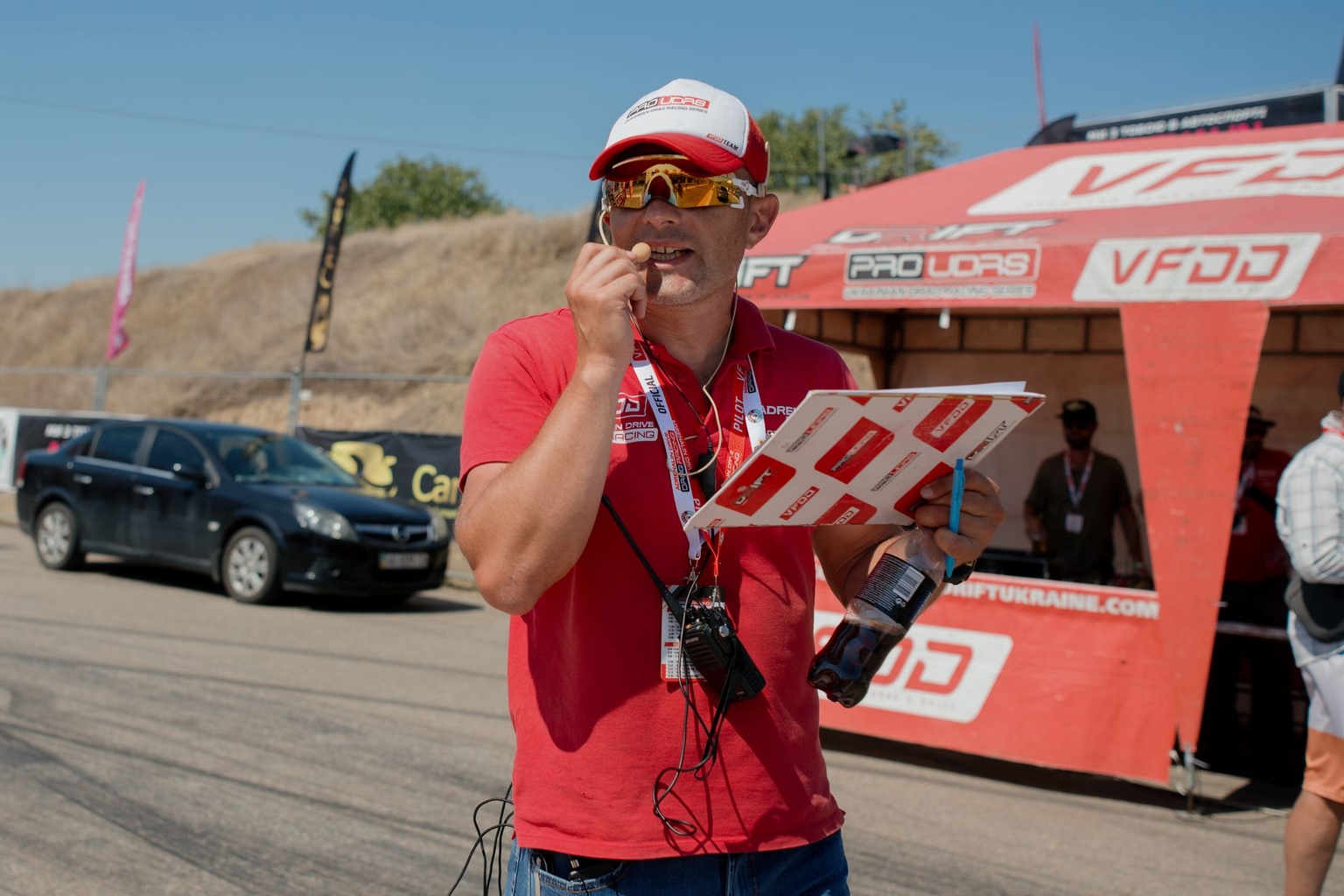

"From morning to evening, Odesa feels like the same resort spot, that we have many vacationers, that everything is fine," says Tverdovskyi. "It starts at night. As soon as the night begins, there are times when both Shaheds and missiles take flight. Odesa, one might say, is in some ways a near front-line city because we're on the sea."
'This is a great responsibility'
Last year, Odesa declared five separate days of mourning after deadly strikes, when flags flew at half-mast and entertainment events were advised to be postponed. The most recent was on Nov. 19, after a Russian Iskander-M ballistic missile struck the city, killing ten people and injuring 55 others.
Among the many buildings damaged by strikes are tourist hotels, including the famed five-star Bristol Hotel in the heart of downtown.
But even though night is often the most dangerous time in Odesa, the revelry doesn't stop when the sun sets.
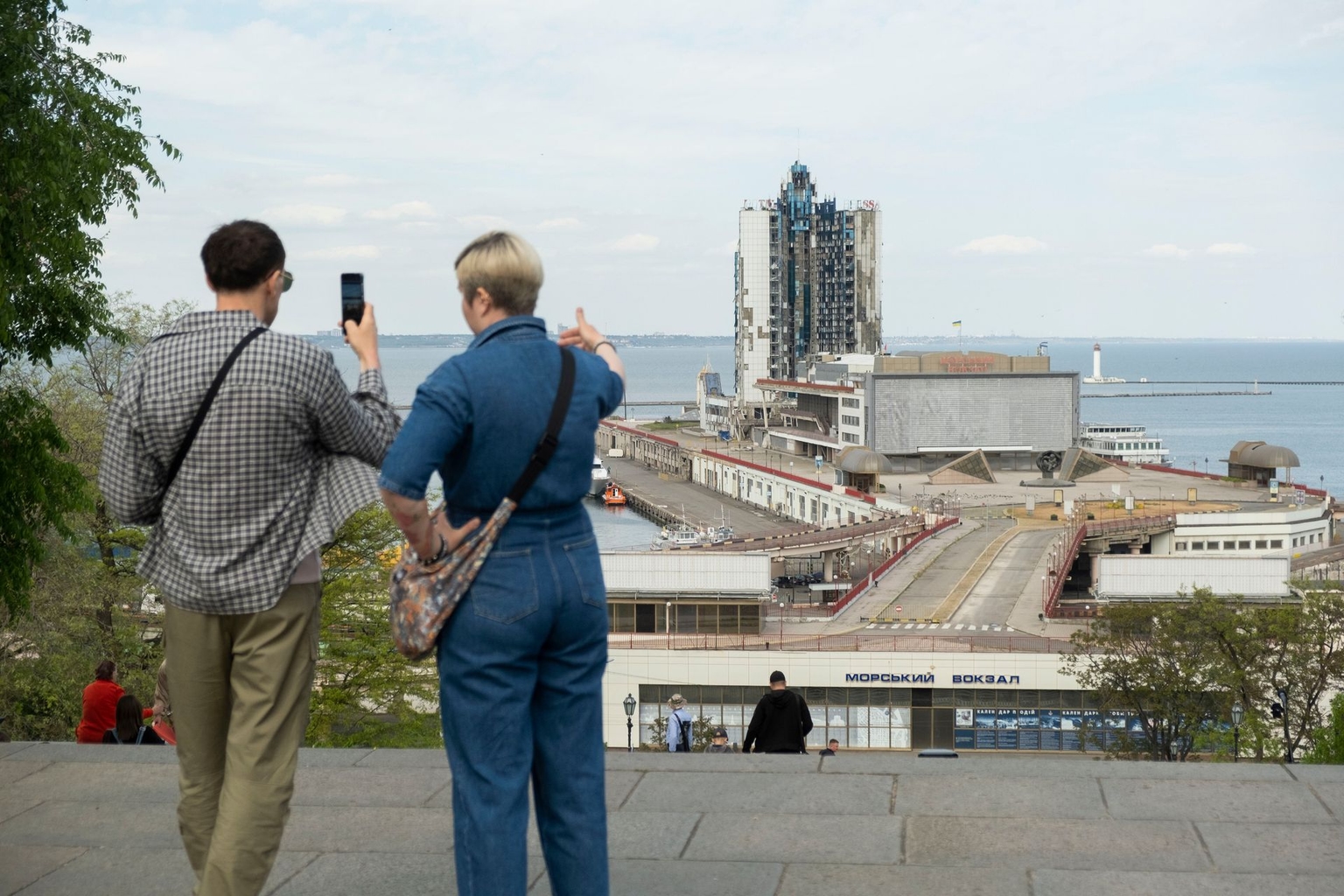
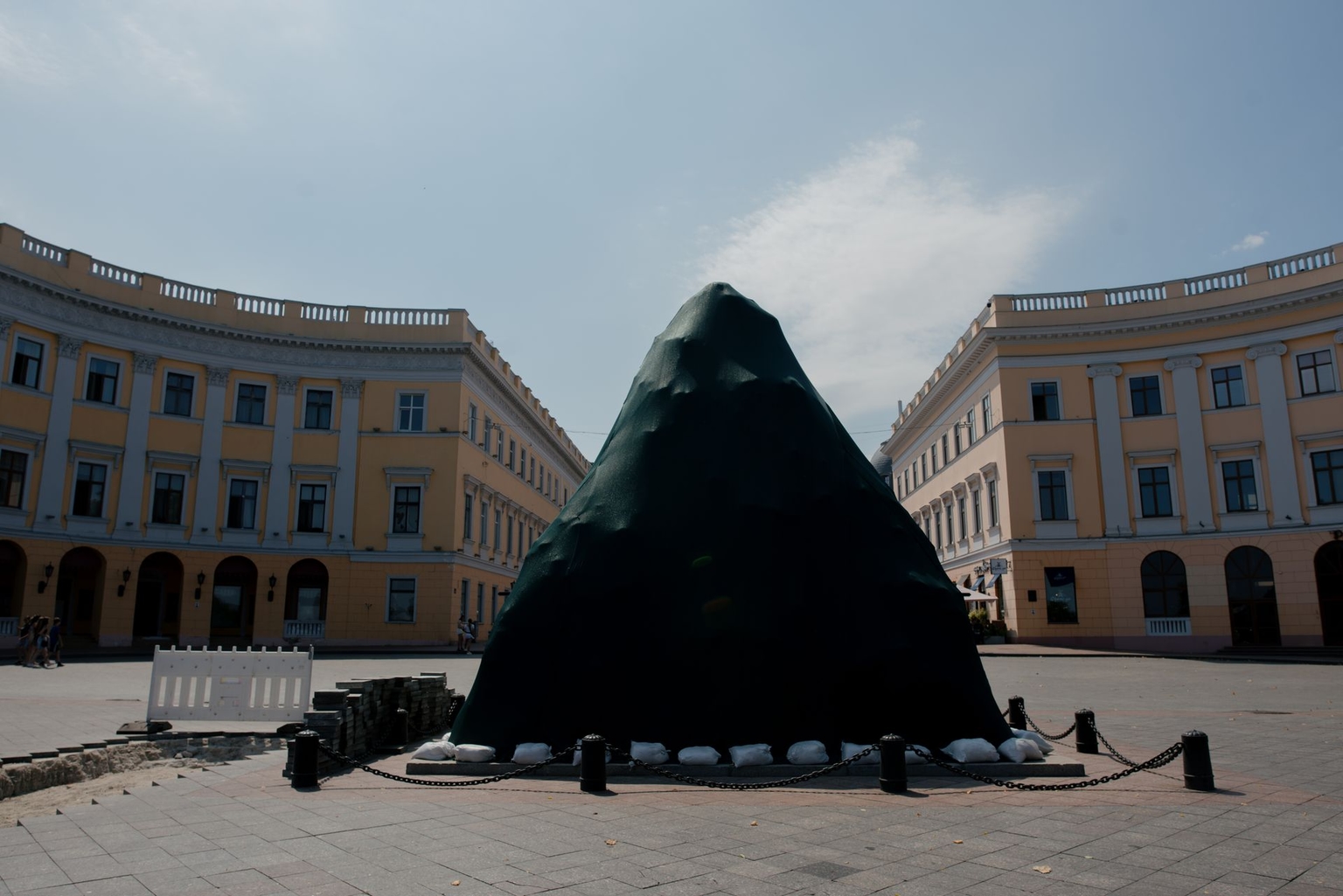
In the heart of downtown, women in flowing skirts and royal purple stilettos sip lime-green cocktails. Water droplets drift gently onto their shoulders as they pass by misting machines to cool off from the summer heat.
A bride gingerly bites wedding cake off her husband's fork, as they pose for post-wedding photos in an outdoor courtyard under a nearly full moon.
On the most densely packed streets, decorative string lights and live DJ sets pull the eyes and ears toward open bars as families walk by with ice cream cones. The music morphs from Latin strains to disco-like dance hits to Michael Jackson over the course of a block.
Yevhen Sobchenko, a 42-year-old engineer who was born and raised in Odesa, drinks at a table outside the wine bar Happy Wine, less than a block from a memorial for fallen soldiers. With two disabled parents he cares for, Sobchenko won't leave for safer areas like many of his friends have.

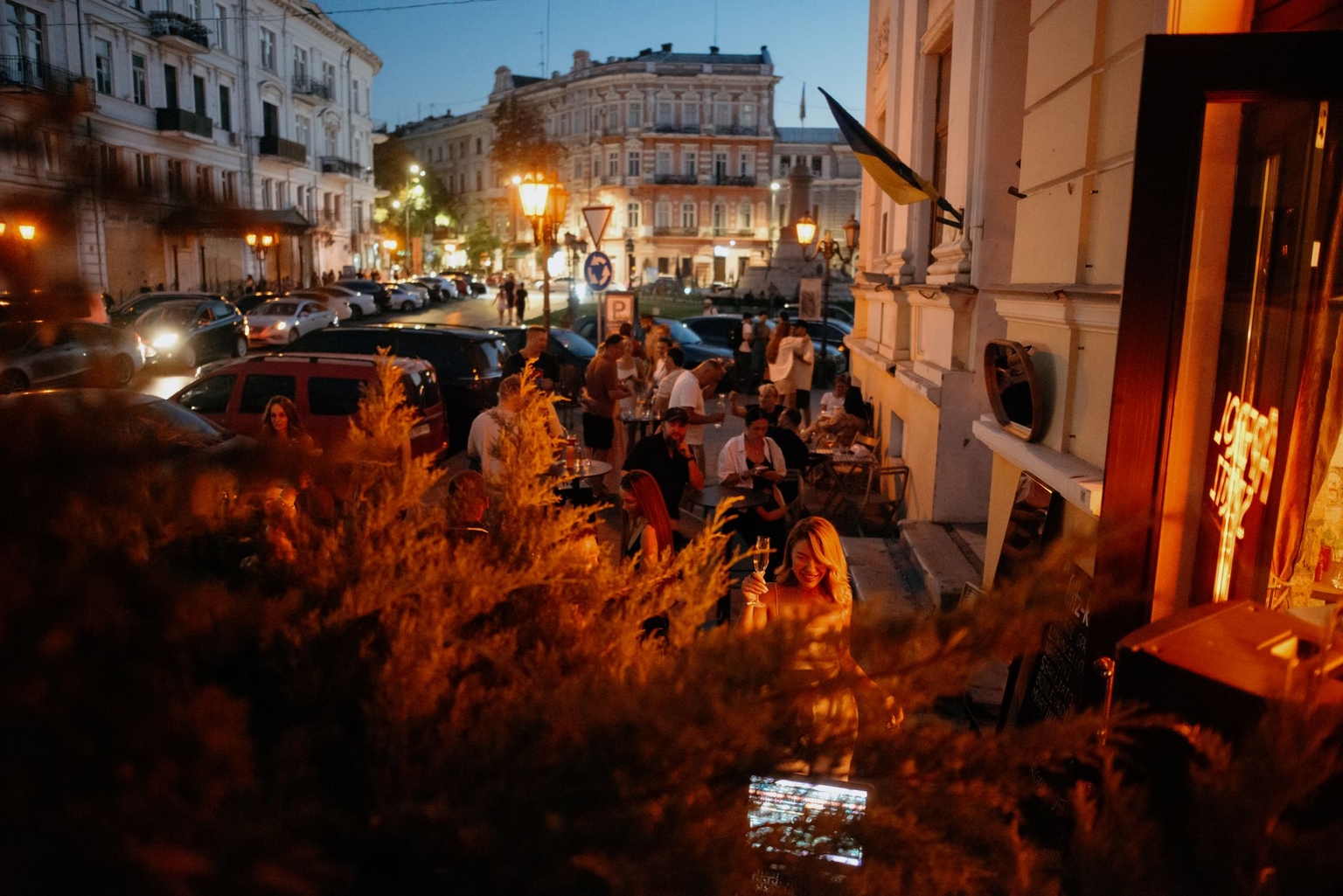
He makes introductions between the people who have gathered near him, switching fluently between English and Ukrainian to bring foreigners and locals together. A friend serving in the military has joined him tonight, and he wants to show everyone a good time.
"It is very difficult to live in Odesa when all your friends have fled abroad," Sobchenko says. "But this is a great responsibility. You understand you have to do your job to make it fun and comfortable for people visiting."
Note from the author:
Hi, I’m Andrea Januta, thank you for reading my latest piece. As a writer living in Ukraine, I’m always trying to share stories not only about the country’s challenges, but also about the fabric of Ukrainian society that so many are fighting to preserve — from sports and religion, to bird watchers and businesses. It’s meaningful but difficult work.
If you’d like to support the Kyiv Independent’s work, please consider supporting us by becoming a member.

